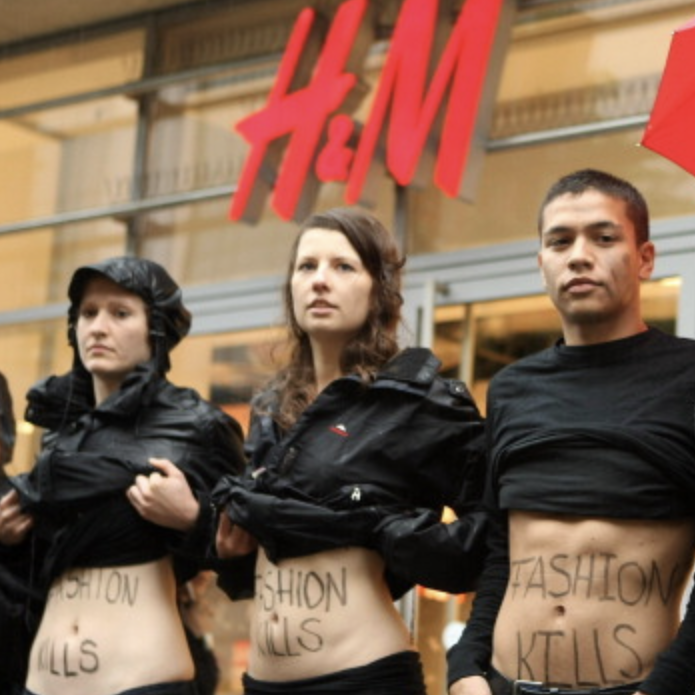Fashion and you: the dark side of the clothing industry
Clothing is cheaper than ever in this era of fast fashion, but there are hidden costs behind the clothes you love. CONOR ROSS went to the launch of the Ethical Fashion Guide.

http://gty.im/148321094
A protest against fashion chain H&M for its use of sweatshop labour.
By CONOR ROSS
Clothing is cheaper than ever in this era of fast fashion, but there are hidden costs behind the clothes you love.
To help educate young Australians on the moral choices behind clothing, BWA (Baptist World Aid) have launched the 2017 edition of their Ethical Fashion Guide.
BWA Vic/Tas representative Mark Purser prompting audience members to look at themselves first.
"Whose hands have created my clothing? Are they the hands of the exploited?" he said they should ask themselves.
“Ninety-five per cent of the clothes we wear are produced in developing nations by garment workers, who are roughly 85 per cent women and are some of the poorest paid people in the world.
"Since the clothing is so cheap, most people don't feel bad if they only wear it once.”
The launch conference was held at the Beaumaris Baptist Church and involved a panel talk with Mr Purser and several entrepreneurs who are seeking to change the fashion industry.
Mr Purser said people had the power to bring about change.
"The consumers have all the power – the power to turn the industry from slavery into an ethical fair industry that will ultimately help these countries develop," he said.
Koky Saly, the founder of the Beekeeper Parade, a social enterprise that recycles fashion waste into backpacks and bags, said the fight for justice was slow.
“The industry is turning, though slowly,” Mr Saly said. Beekeeper Parade has recently opened a new retail outlet in Melbourne Central.
Clothing industry problems
The Ethical Fashion Guide rates clothing companies from A to F on their labour rights management, with higher grades given to companies that "reduce the risk of modern slavery, child labour and exploitation".
Many well-known international brands rate poorly on that scale, and these include Victoria's Secret, Tommy Hilfiger, and Abercrombie & Fitch.
Clothes for the major markets are regularly produced in the worst of conditions, with poor wages and unsafe workplaces and practices.
In 2013 Rana Plaza, a garment factory in Bangladesh, collapsed and killed 1134 workers, and injured more than 2500.The building was known to have structural faults, and these were intentionally ignored by management.
The Rana Plaza collapse was heralded as a wake-up call for the fashion industry, but four years have passed since and the situation remains dire for garment workers
http://gty.im/539731874
A sweatshop that produces fashion clothing.
Attempts by workers to form unions or raise the minimum wage are often met with violence. In July 2014, when Cambodian garment workers protested in Phnom Penh to raise the minimum wage, the government responded with full force.
The protest was subdued after four protesters were beaten to death by police and dozens more injured by live ammunition being fired into the crowd.
Brands that are paying attention
But some companies are also changing their practices in response. Fast-growing Australian brand Cotton-On recently responded to the BWA by altering their fabric sources to companies with fairer work policies.
The companies listed with the best rating of A+ included Audrey Blue, Zara, JAG, and Patagonia – meaning they have implemented “labour rights management systems that reduce the extent of worker exploitation”.
To access the Ethical Fashion Guide or to find more information, please visit: https://baptistworldaid.org.au/resources/2017-ethical-fashion-guide/





